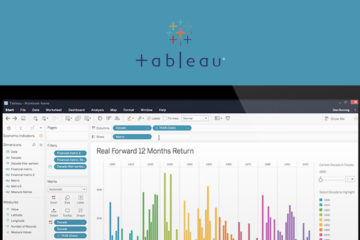FATCA – The Best Opportunity for KYX!
By: Marc Murphy (Fenergo)
Having attended the FATCA Forum event in London two weeks ago, one word kept cropping up time and time again in relation to FATCA – not from vendors (surprisingly enough) but from compliance and tax experts from leading financial institutions. And that word was… opportunity. An unusual choice of word to associate with a piece of regulation that is as far-reaching, resource-hungry and ill-defined as FATCA.
So what opportunity does FATCA present?
Well, for some compliance professionals at the conference, FATCA is an opportunity to get to Know Your Data better. FATCA is very much a data exercise, the majority of which involves searching, identification, cleansing, classification, verification and collection of additional of client data – not to mention the reporting that’s involved. For a bank with several thousand clients, this represents a significant tranche of work – with some records being available electronically, while some remain in the realms of dusty manila folders.
One leading financial institution spoke about the issue of existing data quality in terms of trusting the data integrity, identifying gaps and determining the data that still needs to be collected from clients. Indeed, we’re seeing a lot of our clients trying to pull together data lying in different repositories all over the bank in an effort to build up a more complete picture of the client before determining the gaps that remain and the information that needs to be collected. And while pure data centralisation may not be a reality for a lot of financial institutions, the ability to interface into different databases to create a link between the data sets is an essential first step in the cleansing and remediation process. With a more complete picture, you may even be able to conduct a pre-classification of the client, potentially limiting the number of clients your institution has to contact for self-certification or declaration (through W-8 and W-9 forms). It also helps to reduce the potential of a client receiving numerous information requests from different parts of your institution based on the different types of accounts they hold.
Many of the conference delegates claimed that FATCA was the ideal opportunity – there’s that word again – to collect more information for other areas of the compliance function such as Know Your Customer (KYC) or Customer Due Diligence (CDD). This makes perfect sense – after all, it will cost the same amount of time, effort and budget to collect FATCA-specific information as it would to collect information to comply with both FATCA and CDD / KYC regulations. In this way, financial institutions not only future-proof themselves against more stringent KYC regulations, but they also benefit from a deeper, more insightful Know Your Risk (KYR) process – armed with a richer, more complete, accurate risk profile of their clients and potential reputational exposure.
Of course, all of this is just talk at the moment. Actually putting it into operation is a whole different story. To make this a reality, financial institutions will need to get more acquainted with KYT and KYP – Know Your Technology and Know Your Processes – because to do all of this, you need to automate as much as you can and ensure you have the workflow and processes underpinning it to make it as smooth and efficient as possible. As I’ve written about before, many financial institutions are looking to supplement their chosen FATCA solutions with flexible online portals to collect additional information securely and efficiently from clients and make it as easy and unobtrusive as possible for them.
Indeed, the ability to future-proof technology to make it as flexible and configurable as possible was a distinct theme at the conference, where questions were being raised about the French mini-FATCA model and the persistent rumours of a UK FATCA. In fact, one global institution stated that they were making their FATCA technology implementation as nationality-neutral as possible to pave the way for a more globally widespread tax initiative. I would go one step forward and recommend that institutions solve the classification challenge rather than the FATCA challenge – because from 2013 onwards, we are set to see far more regulations coming on-stream that will demand a similar classification approach to FATCA (Dodd-Frank, LEI, MiFID II, Basel III, 4th EU Money Laundering Directive to name but a few).
By simply making sure your FATCA technology solution (KYT) and processes (KYP) are flexible enough to adapt to additional regulations (FATCA and non-FATCA alike), you can pave the way towards
- Richer, more meaningful client data (KYD)
- Stronger compliance and adherence to CDD / KYC regulations
- Improved risk management and increased protection for your institution (KYR).










